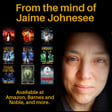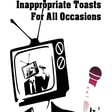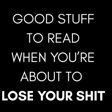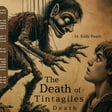Become a Creator today!Start creating today - Share your story with the world!
Start for free
00:00:00
00:00:01

Guest: YA Author Kody Boye
Kody Boye Is a young adult horror, fantasy, and science-fiction author currently residing In the Rio Grande Valley of South Texas. When not writing, he enjoys reading, playing video games, and pestering his many cats.
www.kodyboye.com
www.youtube.com/@KodyBoyeBooks
We talk Shark movies, advocacy, Kody's HIV diagnosis, and why he avoids Mary Sues. Also generational trauma, YA fiction, and how bipolar disorder impacts work output. TW suicide.
A complete transcript can be accessed here.
Transcript
Introduction to Creativity and Neurodivergence
00:00:02
Speaker
You are listening to the Mentally Oddcast, where we talk with creatives about neurodivergence, trauma, addiction, and all the other things that impact and inform our art. Our goal is to show everyone that no matter what you're going through, you are not alone and you can make art about it.
00:00:24
Speaker
Music
00:00:34
Speaker
You are listening to the Mentally Oddcast.
Podcast and Host Introduction
00:00:36
Speaker
My name is Wednesdayly Friday, and we are brought to you by Sometimes Hilarious Horror Magazine. Find us on Ko-fi and support us.
Meet Cody Boy, Genre Author
00:00:45
Speaker
um Today's guest is Cody Boy, who is a young adult author. ah he also writes, um he writes horror, fantasy, science fiction, lots of stuff. And he currently resides in the Rio Grande Valley of South Texas, where When he is not writing, he enjoys reading, playing video games, and pestering his many cats. So we'll certainly talk about that later.
00:01:11
Speaker
Hi, Cody. Thanks so much for being here. Hi, thank you. It is great to have you. We've actually known each other for a long time because for those of you who don't know, Cody actually does my layouts.
00:01:22
Speaker
ah He's layouts for my President's Son books and I think also my collections.
How 'Jaws' Sparked a Love for Horror
00:01:28
Speaker
We generally ah begin the show by asking guests to talk about the first horror movie they remember seeing. So please...
00:01:37
Speaker
Oh, gosh. i From what I can remember, um based on how traumatized it made me, it was Jaws. ah my my My dad, when we were little, he was watching it on TV without my mother knowing.
00:01:51
Speaker
Right. and And it gave me lifelong trauma for the ocean. Oh, I'll tell you, man. I was i was a kid when Jaws came out. And so the trailers were on TV all the time. And I was, you know, maybe like four or something.
00:02:06
Speaker
And I was just so intrigued because sharks, I thought, were so cool and scary. um I was in no way able to handle the amount of of shark and scary voices I was seeing. i had so many nightmares.
00:02:21
Speaker
so ah So, yeah, I get that. That's traumatizing. And it's weird because there are a lot of people who don't consider Jaws a horror movie. Oh, yeah, that's that's kind of weird, though. It is. It's like, well, a child gets eaten alive right in front of you. How much more horror are you looking for? Yeah, no kidding, right?
Enjoyment of Shark Movies Despite Trauma
00:02:41
Speaker
So it it traumatized you, but it seems like maybe it also set you on a path. Oh, yeah, definitely. i love horror stuff to this day.
00:02:52
Speaker
I'm still into the shark stuff, even though it traumatizes me every time I watch it. I love Deep Blue Sea, of course. Yeah, and ah most of the Jaws movies are still good, even though the corny ones. but Well, if you like corny shark movies, my God, there's so many to choose from now.
00:03:12
Speaker
Yeah, I've i've noticed. yeah I had a friend telling me something about Santa Jaws. Oh, we added Santa Jaws to our our yearly viewing. It's just so funny. But like Sharks of the Corn, ah Doll Shark, Raiders of the Lost Shark. And then there was this there was one season for Shark Week that Asylum, one of the companies that makes tons of those kinds of movies, made three different shark movies. It was like Swamp Shark and Trailer Park Shark.
00:03:39
Speaker
And something else, I don't think the Shark and Saw Prison Break Massacre was related to that, but it was the same year. But all three of the movies, the survivors from them met up in another movie at a support group for people who survived shark incidents.
00:03:56
Speaker
And so there's this third or fourth movie that has the survivors of three other movies and they're in therapy. And I think the therapist like gives them LSD or something. So it's they like start like hallucinating shark attacks inside a house. I think it's called House
Early Writing Inspirations and First Story
00:04:14
Speaker
Shark.
00:04:15
Speaker
ah Now I want to look it up, but it's wild. It's just wild. um It's almost as bad as them being in the pool or something like that or in the bathtub. Well, did you see the ghost shark movies? There's two of them.
00:04:27
Speaker
I haven't seen. and there's like, there's the shark in like a slip and slide. There's one in an office water cooler. and oh gosh. Yeah. um No, my, my thing with movies is that because it's kind of more of a, a passive entertainment for me, I find it really hard to just sit still.
00:04:45
Speaker
Like, you know, actively engaging with something. Yeah. Yeah. yeah and so what does so So you watched shark movies when you were younger. It sounds like you're kind of still watching them.
00:04:57
Speaker
um How did that lead to the writing of horror for you? um I mean, when I first started writing, when I was about... like i think I was like six or seven. It was something we did for a class assignment at school.
00:05:13
Speaker
um was just supposed to be writing like a very short thing, but... like most of my peers wrote like maybe a few paragraphs. I was writing pages at this point, like even after the assignment was over.
00:05:26
Speaker
And so I was writing fantasy mainly. And then when I hit my teens, I discovered Stephen King, of course, like many people do. um And I think the first one I've read his was Rose Matter. And that,
00:05:40
Speaker
Probably not the best introduction to Stephen King when you're like 13 or 14. But um yeah, so I started um dabbling in horror and that sort of thing. And around the time I started getting really into writing as like a thing,
00:05:57
Speaker
i wrote a short story called a prom queen's revenge, which was about prom queen getting back at the next boyfriend who had done her wrong. Nice. And, um, it was published when I was about 15 and a half in a small web scene. It's probably still, yeah, it's probably still there somewhere online, but, um, yeah. So that kind of got me started on my, my small press slash indie publication path. Now we're were teachers encouraging to you.
00:06:25
Speaker
No, not really. um Not that they wouldn't weren't because they didn't know about it. Well, they didn't know about it I should say. But um because I was very shy as a child, I still kind of am. But that's kind of um deals with some my more social anxiety aspects that I deal with.
00:06:43
Speaker
So, yeah, no, I didn't have any teachers really encourage me to write because I never really told anyone. But you were still writing and publishing as a teenager. Yeah. That's amazing.
00:06:53
Speaker
Yeah. Yeah, see, there was no internet when I was a teenager. So, I mean, there was, but it was, I think, just the military still using it then. and Oh, gosh. Yeah, I'm old. My my alma mater, ah college alma mater, got the internet the summer after I graduated.
00:07:11
Speaker
Figures, right? that that i I joke with my ah my college journalism professors all the time. I'm like, dude, you didn't teach me shit about podcasts. What's that even about? um gosh, yeah. it's Like, well, we can't teach you about what doesn't exist, ma'am.
Impact of HIV Diagnosis on Mental Health and Writing
00:07:26
Speaker
and all right So um if I could get a little personal with you, I'm aware that you have an HIV diagnosis. And I think, can we start by just covering like, where were you at in your writing career when you got that? Because I would have to think that would be derailing.
00:07:43
Speaker
Oh, yes, by far. I was about, let's see. I was 22 when I was diagnosed. um I was still kind of getting my foot in this the independent publishing thing.
00:07:58
Speaker
And when I found out, it was just, i went in, random test, didn't think anything of it, and I traumatized the poor tester who was doing it his first time, one of his first times.
00:08:10
Speaker
um He finger pricked me with a Lancet and he, it came out false positive. And then after 10 minutes later, they're like, oh, well it could be, could not be. And then it turned out to be positive. So when that happened, i was still working on some of my more fantasy-ish stuff, which was at the time,
00:08:33
Speaker
called my the brotherhood saga which got rebranded into the banished legend but at that time i was still kind of recovering from losing an agent due to my own mental health struggles and being diagnosed at that point was just a major major setback in many ways because i think a lot of people are under the um have the perception that it's just, oh, you're diagnosed, you get a treatment right away.
00:09:03
Speaker
But no, you, you're diagnosed, you get in contact with the health department who then give you an interview where you have to tell them every little dirty detail about your life basically and about your, and it's very, i wouldn't say it's like humiliating in a way, but it's made to feel that way. I think just because of the stigma surrounding HIV and sex.
00:09:27
Speaker
But Yeah, so you do that, and then you go in for more blood work, and then you go in for more blood work, and then you go in for more blood work. So over this period of time, which took was about six months until I got into treatment, wow a I was a nervous wreck naturally. think Gosh.
00:09:46
Speaker
My mental health was spiraling already before that point and leading to risky behaviors anyhow. So when this happened, it was just like like an explosion of emotion.
00:09:57
Speaker
and ah it really affected my writing because I couldn't write for like three months. And that was my outlet for a lot of things. And when I finally got into treatment, it it really kind of brought home how lucky I was to live in a period where there was medication that wouldn't you know kill me slowly or that wouldn't give me debilitating side effects.
00:10:26
Speaker
And Yeah, it brought that home, and it just made me realize at that point that um I just needed to concentrate on what I enjoyed doing, which was writing, and that's what I committed myself to doing.
00:10:41
Speaker
ah Okay. um Wow. it's i can't I'm trying to wrap my head around that, and it's hard because it's so huge. um Because when you find out that you have some sort of illness, all you can really think about is, well, we got to work on this. We got to get this taken care of.
00:10:59
Speaker
People don't find out they have cancer and then say, yeah, well, maybe I'll get some blood work in a couple of months, see how that goes. um yeah I mean, I guess now they do because I'm supposed to have a procedure for my heart and I'm waiting to hear back if I get the charity for it or not. And if I get into a charity program, then I get the procedure. And if I don't, then I mean, you know, I'll probably be dead by the end of the year.
00:11:21
Speaker
But it's just one of those like, I i mean, I feel bad because i don't feel like I should be taking charity money. Because I'm over 50 and I don't have any kids. It seems like that money should go to like a different person that has like a whole bunch more to live for.
00:11:41
Speaker
But I don't want to go off on a tangent about me because in addition to dealing with HIV, you also are ah
Living with Mental Health Challenges
00:11:49
Speaker
bipolar, ah right? You have bipolar 2? Yes, i and my diagnosis was kind of back and forth on that because sometimes I'm really hyper manic, other times I'm very depressive, but when we did some more investigating and looking at my history, we found I was more depressive most of the time, which I believe is number two.
00:12:11
Speaker
And along with that, I also have generalized anxiety disorder. I have post-traumatic stress from my childhood from being bullied so relentlessly. And I also have obsessive compulsive personality disorder, which is more focusing on like certain tasks and behaviors rather than, as I say, like, you know,
00:12:35
Speaker
um I kind of compare it to like, I fixate on a concept rather than ah routine, I should say. So I'm not like obsessively cleaning all the time or anything like that, but I'm just like thinking about things and, you know, they kind of catastrophize. Yeah. Oh no, I totally get that.
00:12:55
Speaker
And it's that, that weird thing of like, well, I can't do anything else until I take care of this thing. Okay. Well, when are you going to take care of that thing? Two weeks from now, maybe if I feel like it, like if everything works out right.
00:13:06
Speaker
Like it can be like just the whole executive function thing gets, gets so impacted by all that. Yeah. And I even, i deal with that even more to a, to a degree because I also just recently found out that I'm most likely on the autism spectrum as well.
00:13:27
Speaker
I didn't get an official, official diagnosis. I got like a pre-diagnosis. so It's expensive. but It's expensive to get diagnosed with autism. Yeah. Yeah. So I was like, well, do I want to try and pursue that? Because my insurance was being, you know, kind of lenient about it, surprisingly.
00:13:45
Speaker
by um But I think that's kind of a result of all my documented mental health problems anyway. I just i just need to point out for a second that you use the word lenient to describe and ensure covering your medical. yeah And I told my first impulse was to be like, wow, how nice that they were lenient.
00:14:05
Speaker
They did the thing that we pay them to do. How wonderful for you. um Yeah, yeah, no, it's it's it's horrible what what most insurance companies do to people. You've seen me post pictures of my medical bills. You know what I'm going through, so.
00:14:19
Speaker
Oh, gosh, yeah, for sure, yeah. It's just awful because you you want to seek the treatment, and that's why I feel very blessed in a way with ah um the HIV diagnosis because the thing that most people don't kind of think about, i think, is – what caused you to become diagnosed in the first place.
00:14:40
Speaker
And on, in my experience, scenario or circumstance, it was the the mental health issues causing me to take risky health behavior, risky behaviors.
00:14:52
Speaker
And so um in that sense, when I got diagnosed, I was on the county health program insurance. And then i was on right the Ryan White program for about four or five years.
00:15:04
Speaker
And they were treating me from my mental health stuff as well, when I otherwise would not have been having mental health treatment. Well, and it's interesting because I hear from a lot of manga people about all the problems that are caused by mental health. They think that gay people, trans people, people that, I mean, just, you you know, people that like open fire on communities or whatever, that all of that stuff is like, oh, it's a mental health problem. It's a mental health problem.
00:15:32
Speaker
Well, great. Let's get people care. Like, I don't agree that all of these are simply mental health problems, but if that's what's happening, let's not point and mock people that we think are mentally ill. Let's get them mental health treatment.
00:15:46
Speaker
And there doesn't seem to be, I mean, ah people are talking about it more than they used to, but given the incoming administration, i don't think anybody thinks that on a federal level, anybody's going to get better mental health care.
00:16:01
Speaker
And it's a shame because the more oppressive the government becomes, the more people are going to need that kind of mental health care. Oh, yeah, definitely. For sure.
00:16:13
Speaker
So um with your bipolar disorder, like I'm bipolar one, so it's a little different than what you have going on. um But what I find is that when I am depressed, almost no work gets done, like at all.
00:16:29
Speaker
And when I'm manic, I can begin a bunch of different projects, but I typically don't finish them because by manic and I'm not making like realistic choices in terms of what the rest of my life is.
00:16:44
Speaker
do you Do you find that, that the depression slows your work output and the the mania may like improve it or no? No. I think the mania improves it to a degree ah because with I'm on like four different medications for my mental health, just my mental health stuff.
00:17:03
Speaker
But um I'm pretty stable most of the time. I'm the most stable I've been in since I was diagnosed with bipolar in 2010. And I went through at least 16 or 17 different mental health medication combos to get there.
00:17:17
Speaker
So it wasn't an easy process for
Managing Bipolar Disorder's Impact on Writing
00:17:19
Speaker
certain. oh no i'm I'm familiar with that ride. But with the mania, when I do get manic, I'm like a thousand thoughts a minute. I'm, you know, hamster wheel in the brain kind of thing. I can do basically anything I want to, you know, yeah unless my wrists don't give me issues or anything like that.
00:17:38
Speaker
But when I'm depressed, it's like... and stuff just grinds to a slower halt. um I've kind of learned to kind of trick my brain into still being productive due to the job I do as a content writer, a feature writer at my day job.
00:17:54
Speaker
So I have to write anyway, even if I don't want to. and but Yeah, it does slow the creative juices down for sure. Do you find that when you're writing like perfunctory stuff like that, like this is my job, I have to put in this many words by this time.
00:18:10
Speaker
do you find that like when I have to do that, there's no enjoyment in it. And I don't think the work is good almost no matter what. Like I can't like the work that I i produce in those circumstances. Yeah.
00:18:25
Speaker
do Do you find that to be the case or do you feel fine about the stuff you're writing even when you don't want to write? um With my job in particular, it um it it tends to depend on the project I'm working on.
00:18:39
Speaker
I do a lot of feature pieces on particular people and some some clients are more forthcoming with information than others. So some things are easier to write about than others.
00:18:51
Speaker
But... I think when I'm in that sort of state of depressive depression, I tend to feel like I'm slogging through it.
00:19:01
Speaker
And when I feel like I'm slogging through something, it it doesn't feel enjoyable. And like you said, it doesn't feel like it's the best work I could be doing. But my job has been very lenient, and not lenient, um very encouraging about You know, when stuff is good and sometimes I'll be like, oh, I hate this. But they're like, oh, no, this was great. So just little self-defeat is attitude on my part when that happens.
00:19:27
Speaker
Neat. OK, so so let me ask you this. When you were first diagnosed with bipolar, did you agree with that diagnosis? Did that seem reasonable to you?
00:19:39
Speaker
I knew something was wrong. I had friends who would be like, oh yeah, you've you've got something going on here. But ah the the main thing I was trying to figure out was what can I do to make these horrible anxiety spiraling thoughts attacks stop.
00:19:59
Speaker
And so when they put me on medication, i was like, I was just gung-ho for whatever would work, whatever could work. And So when I was i first diagnosed at the end 2010, I was put on one medication. i don't remember the name of it, but um it seemed to help, but it stopped working after a while. so I'm like, am I really bipolar? Right, right. Because when the medication doesn't work, it definitely can make you doubt the diagnosis. Maybe I don't even have that. and
00:20:34
Speaker
but yeah But there's so much guesswork involved. And this is something we talk we've talked about a lot on the show that like... You're a person and you're having mental health issues. It's affecting you emotionally. There are probably physical things going on And so you try out medications and those medications have a profound impact on the way you feel, you think, your thought process works.
00:20:58
Speaker
And you might like, like your experience, you might have to try a bunch of different ones. I know I did. And I mean, I've taken things where like I took a medication once where the second day I woke up,
00:21:09
Speaker
I thought that I had a job that I had five years previously. And I was like getting ready to go to the wrong job. And I'm like, why can't I find my Blockbuster shirt?
00:21:21
Speaker
Well, because you don't work for Blockbuster anymore. gosh. Yeah. Yeah, that's not helping my depression at all. So.
Societal Misunderstanding and Stigma of Mental Illness
00:21:32
Speaker
and no because you second guess yourself at that point. And so much of mental illness is trying to pay attention to like how you feel and why you feel that way. So you can guess whether or not it's reasonable.
00:21:45
Speaker
And that yeah that in and of itself is like, you know, it's it's. And that's the thing is that if you're you're trying out all these different medications and you're trying to keep your life straight and you still have to like do your job and see your family and earn money so you don't be homeless. And, you know, I don't think a lot of people really appreciate how messed up that is, you know, and and you try and explain it to like a sane person with no mental illness. It's like, OK, try and live your day.
00:22:15
Speaker
But imagine that everyone hates you. just as a Just as a baseline of what it feels like to be mentally ill, just assume that everyone who speaks to you is annoyed with you. And if they seem nice, it's because they think you're crazy and they don't want to upset you.
00:22:34
Speaker
Yeah. or Or it's like you you're you're trying to you know maneuver through life and you're like... oh, did I just say something stupid? Or um what is this person going to think about me? Do they hate me? Like you said, do they, are they just trying to be nice to me because they don't want to interact with me because they think I'm crazy or something like that? right. And you second guess everything because you're just trying to figure things out.
00:22:59
Speaker
And it can totally spiral. And meanwhile, you're surrounded by these people with no mental health problems that are like, Yeah, I got up today and I felt great and then I did my job and now I'm going to go home and relax. Like, I don't understand any of the things you just said.
00:23:14
Speaker
Yeah, yeah. Where's this um where's your your the voice in your head saying, oh, you're doing this wrong, like every single moment of your day. Yeah. Yep. Most people don't have that.
00:23:25
Speaker
And that's what makes it so frustrating when you're talking to someone who's like, oh, just go outside and walk in nature. It's like, I don't want to walk in nature because I'm depressed. It doesn't make me feel good. it makes me feel horrible.
00:23:37
Speaker
And if I interact with other people while I'm walking through nature, I'm like, are they going to kill me or something like that? Thank God it's just a bear. ah Yeah, for sure. Yeah. So when you were when you were first going through this, did you feel like you had the kind of support that you needed?
00:23:56
Speaker
I am very fortunate in that when I got diagnosed with bipolar, I was on. some my parents' health insurance at that time. So I had some support.
00:24:07
Speaker
And the thing was, they weren't making me get the prescriptions primarily through my insurance. They were giving me samples to see if it would work because they weren't entirely sure if it would work. Oh my gosh, yeah, I remember that. When you just go in and you get like all these big packages, trying to shove them in this little purse. Yeah.
00:24:27
Speaker
Yeah. And the the the nurse, bless her heart, she was amazing. And she did it until she couldn't legally anymore, because she didn't want to lose her job. But um yeah, I mean, when I was going through it initially, I felt like I had a really good support system with some friends and the family I do talk to. And, um you know, the system I was in, because I was fortunate in that I had my parents' insurance, and then when I went off their insurance, I was on county assistance programs that were helping me out.
Challenges with U.S. Disability System
00:25:01
Speaker
And that was fortunate on my part because if I didn't have that, I wouldn't have been able to receive the treatment I did. What about in terms of like school and work and you know getting things done? were Were people supportive for those kinds of things?
00:25:19
Speaker
When I was diagnosed in 2010, went i went to clinic I was at. And when I got through that, I started trying to go to college in Austin when I lived in Austin, Texas.
00:25:34
Speaker
um I didn't really have any support system there because I didn't seek it out. through there and I wasn't working. I was just mainly making money off my writing because back in 2010 to 2015, you could put a book on Amazon and make money on it without advertising it because it was so new at that time.
00:25:54
Speaker
ah So I was able to, you know, pay for stuff just on that basis. But when that kind of went downhill, my mental health just got a lot worse.
00:26:05
Speaker
So, I ended up going through the the disability process for about, i think it was about three or four years.
00:26:17
Speaker
And, and the, the process is just nightmarish in its own right. I have a husband. and So they just looked at me and said, no, you're not, you, you don't get disability help. You have a husband.
00:26:30
Speaker
yeah oh Yeah. What does that mean? Yeah, because they they they use anything they can against you. like Eventually, when they got to my case and I went before a judge, the judge looked at my paperwork and she said, oh, because you were telling your doctors you were feeling okay at your appointments because you know we're trained to say when someone asks how you're doing… Most mental health patients are probably going to be like, oh, I feel fine because they don't want to be seen as troublesome or argumentative.
00:27:01
Speaker
So the judge was like, oh, because you said you were doing fine at your mental health appointments, we don't think you're actually mentally unwell enough to need disability. Really? Because I was lying.
00:27:14
Speaker
Yeah, yeah. I mean, yeah you know what, though? Here's the thing. Nobody wants a society where you say, hey, man, how's it going? And someone tells you the complete truth of how it's going. Nobody wants that.
00:27:26
Speaker
No, because most people with mental health are just dealing with it every day. And when they're like, when someone asks you, how you doing? Your automatic response just to say, oh, I'm fine. Because like you said, no one wants to hear the full story. right Because even if you tell like a ah real, like a brevity truth, like, well, I did not kill myself this morning.
00:27:47
Speaker
just like You if you say that to a mentally ill person, they'll be like, they'll hug you and be like, I'm glad, man. I'm glad you're still here. But when you tell it to somebody that is unfamiliar with mental illness, they're like, my God, I'm so uncomfortable. I don't know what to say.
00:28:04
Speaker
Yeah. Don't ask. Yeah. Yeah, because the the stigma surrounding it is just, you know, oh, if you say something, you know, wrong, it's like, oh, you're being branded as crazy or unhinged. Yeah, well, and as somebody with, like, low-key autism, it took me a really long time to understand that like the relationship between truth and honesty, you know, and like decorum that many times during the day you are absolutely not just, it's not just that people prefer you lie, but like they, it's expected, you know, like when I work in customer service, like 80% of the job is lying. And then they're like, Oh, honesty and integrity is so important.
00:28:48
Speaker
Like really? Because I just told 75 assholes that I hope they have a good day. And I don't, Yeah. Yeah. And that that's what I, a lot of what I dealt with after I lost my disability hearing was when I worked at a major pet store, like you said, I was like dealing with customers where I had to tell them, Oh, have a nice day. How you doing? You know, I'm doing fine. How are you? to-ta-da But it's a lot of lying and that in itself is very draining on a person with mental illness because you're trying to force yourself to be quote unquote normal
00:29:24
Speaker
And you're really not because of all the problems you have. Exactly. and Exactly. And that it's interesting because we had, um I don't know if you're familiar with the neurodivergent rebel online.
00:29:40
Speaker
um I'm not. they're They're pretty awesome, actually. And they're they're an activist for neurodiversity in the workplace. They actually wrote a book about it. And that's part of it is just a sense of like, be aware that people have these kinds of issues and.
00:29:56
Speaker
in Like what employers are asked to do is just to create an environment where you're not mocked or put down for asking for some sort of accommodation. You know, even if the accommodation is don't talk to me until I've been here for 20 minutes and had a cup of coffee.
00:30:13
Speaker
Yeah. Yeah. Yeah, and and it's with a lot of jobs, they're like, oh, well, we can't accommodate you for this reason or another, which is why I felt so lucky when I worked at this pet store, because they were like, oh, yeah, you can only work for this amount of time. you know We'll let you work for four hours a day, which you know after working for eight hours a day for like two or three months, I just couldn't physically wait anymore. Right, yeah.
00:30:36
Speaker
and They're like, oh, yeah, we're not going to fire you. We'll just let you go four hours a day, work 20 hours a week or something like that. And that was all I could physically and mentally do with the time.
00:30:48
Speaker
Sure. Because the physical health and then you know dealing with mental health problems on top of it, it just and makes everything worse. Wow. Yeah. so So these days, though, you're mostly working from home, right? You're writing and then you you take in work, right?
Cody's Current Work and Comfort in Writing from Home
00:31:05
Speaker
Yes. Yeah. I, I, I just, I, I'm like at my computer most the time anyway. So I just, I take in a certain amount of assignments a day. I get paid for per assignment and then I'm done for the day. i don't have to drive to a physical location. i don't have to talk to people on the phone, which, you know, terrifies me to no end, especially, which is why when I decided not to try for,
00:31:31
Speaker
um telecommunication jobs. I was very thankful, especially, you know, when you see videos of people screaming at these poor employees for reason. totes, man. I used to work at my last day job was in a call center. We sold violence and I was going to get, I was going to work for the cable company because they wanted people to work from their home.
00:31:49
Speaker
But first of all, they require um drug testing. And even if you're in a legal marijuana state, they won't let you smoke weed and talk about cable TV. Apparently, which but uh but the thing about being like i'm i'm what they call an extroverted introvert you know like an outgoing introvert something like that where like if i feel comfortable in a situation i can be real chatty and peopley but then i need to get the hell away from everyone and take a nap like i can't you know
00:32:22
Speaker
I'm like that that Key and Peele video where they keep partying and partying, and it's like, no, get me the hell out of this party. This is hell. um Yeah.
00:32:32
Speaker
No, I feel the same way. like If I'm comfortable with people, I can be like, blah, blah, blah, blah. blah blah blah blah blah but But if I'm not, I'm just like in the corner. Like, why am I here? Oh, totally. When I actually moved out and went to college, I didn't eat for several days because as a fat girl, I was like humiliated at the idea of just sitting by myself in the cafeteria and eating.
00:32:53
Speaker
So I just didn't eat. And yeah, it was pretty terrible. um And finally, like some, I think it was like an RA and a peer counselor was like, um have you so eaten?
00:33:05
Speaker
Come sit with us. Yeah. Well, if there's a lesson to to take away from that, it's definitely that come sit with us can be life-saving if you see someone alone. and Yeah, for sure.
00:33:19
Speaker
Yeah. So, okay, so you are a gay man and you have HIV and you live in Texas. Like, how is that going?
Navigating Life in Texas with HIV as a Gay Man
00:33:30
Speaker
ah So far, it's been pretty okay.
00:33:34
Speaker
It's kind of a shock to say, but um I've normally lived in parts of Texas that were what you would describe as purple. Okay. um and i lived in austin for five years and as you can probably imagine with the keep austin weird slogan uh it was pretty open in austin um and then i moved up to the fort worth area which is right outside dallas and that was okay too and then i moved down here to the rio grande valley in 2018 and i've been here since and it's relatively purple here too
00:34:08
Speaker
um it's It's pretty okay for the most part. It's just people don't, in Texas specifically, they're like they're friendly, but they don't want to know what they don't want to know.
00:34:22
Speaker
So like i like even if I do have blue hair or pink hair or whatever, whatever when I'm dyeing my hair crazy colors, um I can still interact with people, but they don't want to hear about my life like you know but what's what's the phrase they use they don't want you um shoving it in their face yeah that's that's basically how i how i treat things with that sort of thing i just i i stay neutral as possible with people and it's worked so fine so far for me which i'm thankful for because i've heard other people you know especially you know when i lived in austin
00:35:02
Speaker
I stopped going downtown to clubs by myself because people were pulling up alongside people leaving clubs and beating them to beating them with baseball bats. Yeah. So I stopped going to clubs alone. So it's like, to a degree, it's okay in certain parts of the state, but you just, you just want to be careful with like, you know, how you interact with people. So you don't draw attention to yourself in that way. Yeah. I mean, I live in a really liberal part of a purple state, you know, I'm in Ann Arbor, Michigan.
00:35:33
Speaker
So people by and large don't tolerate a lot of shenanigans here. But, you know, you go down the street to Ypsilanti and like I had a guy... I was at the IHOP having lunch with my husband and I went to use the restroom and there was some lady ahead of me And apparently i this guy thought I was trans and I was trying to like sneak into the ladies room.
00:35:58
Speaker
And he like oh threw me up against a wall and like made a fist. And I was like yelled like, what the fuck? Like really loud. And you know, people came over And I mean, it was terrifying because, i mean, for all the reasons you would think, it's just like, okay, so this random person is so angry about something he made up in his mind that he's going to physically assault a complete stranger about it.
00:36:26
Speaker
And the only reason that I did not press charges was because I really had to go to the bathroom. That was the whole point. So you know, I finally went in and peed and came back out and the dude was gone. And I'm just like, okay, that was insane. And the thing is that it could have turned way, way worse because I was there with my husband and, ah you know, my husband is a black guy over six feet, which,
00:36:55
Speaker
is, ah you know, something else that people tend to react badly to. um So, yeah, I mean, it's it's crazy because anywhere, like, I hate to even phrase it this way, but, like, anywhere there's an angry white man there is danger. Yeah, no, and it's it's sad to have to feel that way because, you know, you just, you go on living your life and then someone random,
00:37:21
Speaker
that you don't know, that you don't have any problem with, just comes in and is like, oh, I'm going to assert my authority over you. You know, it's scary. Well, and there are so many people on the internet and on TV that are encouraging that kind of behavior.
00:37:37
Speaker
That are encouraging. like I mean, people are so gleeful right now. Oh, there's not going to be any more trans people in the military. well why does that make you happy that's a really stupid like that's just such a dumb thing to be excited about like i don't like oh people will be hurt hurrah like what what even is that like it's a whole political movement now like we're hurting people we don't like for fun aren't you excited like yeah it's
00:38:08
Speaker
Yeah, what happened to just leaving people alone? Yeah, yeah. Well, that's the thing. if If there's people that I don't like online, i well, with one glaring exception I won't name, I i don't follow people that I don't like online.
00:38:23
Speaker
Yeah, no, that makes perfect sense because it's like, it was just like the other day, i i I said something on Facebook and then I turned off the notifications about it because I had made my point because I've come to the the point in my life and and especially in the present circumstances where I'm like,
00:38:40
Speaker
I don't have the emotional bandwidth to deal with certain kinds of people. And, you know, and which sucks because it's like you want to be supportive to other people and you want to be an advocate for yourself and for others, especially if you're marginalized.
00:38:58
Speaker
But there's an emotional aspect to it of and engaging with certain types of people that, you know, certain people can do all the time, but some people just don't have the bandwidth for it.
00:39:10
Speaker
Yeah, yeah that is that is so true. I mean, it's just exhausting to hear from so many people just repeating the same bad propaganda over and over.
00:39:23
Speaker
And now there's like robots doing it. So you don't even know if the person you're talking to is real. And it's like, okay, you're raising children. So if you're a real person that's raising real children, it is worth my time to explain this issue to you.
00:39:38
Speaker
But yeah, if you're AI, then this is just a waste of my day. And Zuckerberg wants to make sure we can't even tell the difference. Yeah. Like, why am I talking to a robot about this?
00:39:51
Speaker
Well, it's a robot that like hates a lot of people. But yeah. So. So moving on, um you actually do something that I have a very, very difficult time doing, which is writing complete book series.
00:40:07
Speaker
How exactly are you doing that? ah I like to think it's because I can't shut up when I'm writing. But um i mean, have always loved reading a longer form fiction.
00:40:22
Speaker
um When I was very young, one of my very... one of my biggest inspirations was tomorrow appears. I'm very thankful that I've been able to communicate with her and talk with her. And she's even at one point shared one of my posts about my book on her page or feed.
00:40:39
Speaker
Yeah. So I'm very thankful that I was able to interact with her cause she was like a childhood hero of mine. And she wrote, um, The Song of the Lioness and Wild Magic and Protector of the Small Quartets, which I devoured as a teenager.
00:40:53
Speaker
And I just loved seeing characters go through events and being shaped by them. and She is in part why i I write young adult fiction now is because I like seeing people, oh especially people who are finding it themselves overcome adversity, whether it's within themselves or because you know there's aliens or vampires or zombies or something like that influencing their lives.
00:41:20
Speaker
So in that sense, I write long fiction longer form fiction because it just it just resonates more with me than short fiction or shorter fiction. But yeah, I guess it's... But like, do you, when you start a story, do you write with a series in mind?
00:41:37
Speaker
Like, are you plotting out multiple books at the same time? It depends on the story. Like, the one I'm working on right now is called War Song.
00:41:48
Speaker
And I had three titles for three books in my head. So I've kind of just set myself to writing at least three of them. So... I tend to not plot because I'm bad at trying to think about stuff, you know, when I'm asked to think about it.
00:42:05
Speaker
um If I'm just like writing on the spot, I can just, you know, keep writing for an indefinite period of time. But if you ask me to think about it, I'm like, what am I doing?
00:42:18
Speaker
So would you say like that events in your life are going to impact ah now a novel series like as you go? Oh, yeah. um Yeah, I, two of them the biggest ah events that have happened in and my life have been shaped, have shaped some of them my fiction in part.
00:42:41
Speaker
Though the main one I can think of right now is my story called The Monsters Within, which is about a young gay man who moves to ah small Texas town to pursue his writing career.
00:42:54
Speaker
How did you get into his mindset? Yes. I know, right? But I wrote that story because i was inspired by the idea of body horror and about what happens when someone's generational curse is inflicted upon someone else through ah sexual encounter.
Media Representation of Suicide
00:43:17
Speaker
So it's like kind of like a body horror possession type story. The other story that is in part been shaped by events in my life is one I'm trying to repitch to publishers right now is called Angel Hour.
00:43:31
Speaker
It's about someone whose family member unfortunately ends their own life and about what happens after that fact. So... um Those are the two biggest ones that have been by the events in my life.
00:43:47
Speaker
And those are just standalone series, or not series, standalone books. But I try not to put too much of myself in my characters because I feel like if I do, it's not as...
00:44:02
Speaker
It's kind of weird to say, but I don't feel it's as genuine to the character because it's like, I want the characters to stand on their own and not be a reflection of me. Wow. That's really interesting.
00:44:14
Speaker
Cause I don't, I don't hear that from a lot of writers. mean, my, my first book is a straight up Mary Sue, but all of my characters are a little bit me. Yeah, no, I, I mean, i like, you know, the the only other thing that I would say i do put into my characters that is me is, you know, like, Oh, would I have preferred something in my life go like this? And then I write it like that, but I try not to impose myself and my desires on the characters.
00:44:45
Speaker
Okay. Yeah. So i think like with my war song series that I'm writing right now, it's like, I feel like in some alternate universe, um, another me got into pop music somehow, like I could sing or something, you know, that's where that came from. So yeah. So like if that was an alternate universe thing, that's the closest thing that I've done so far.
00:45:10
Speaker
So you, you actually mentioned um suicide briefly. um I'm, I'm, that's ah a topic that I think a lot of people, have really strong feelings about what I'm, I'm curious to know is, um, about like a lot of people try to depict, uh, the aftermath of a suicide, like what it it does to the people that have to live with, with what's happened.
00:45:35
Speaker
Um, I, I don't know that I've seen a lot of well thought out, competent portrayals of that, that I find, I find them to be largely, sappy um like that 13 reasons why or whatever that that just made me furious this idea of like telling teenagers how much more power you'll have if you kill yourself and your friends have to go like seek out the mystery of why you did it or you know it's just so performative and gross is there a depiction of that in in contemporary media that you find accurate
00:46:13
Speaker
i I would say no, at least not that I've seen, because even with my own story that I wrote about which, you know, surrounds that, I found that it's very hard to balance the whole story.
00:46:30
Speaker
am I glamorizing it by writing about it with, am I being honest with writing about it? Because as you said, i'd never watched 13 Reasons Why, because mainly because I heard it was very trigger happy with certain people. I watched two episodes and was like, no, I'm not doing this to myself.
00:46:48
Speaker
Yeah. And after I lost a close personal family member a few years back, I was like, I went through, as you would expect, phases where,
00:46:59
Speaker
you know the the seven is The five or seven stages of grief thing model. you know it it It comes and goes in waves. But with this story that I wrote, I had to learn to balance what was you know the actual event of and the happenings thereafter and what i did in this story was i didn't say how it happened and i know a lot of people in some circles would be like oh this is exactly how this happened you know for shock value i feel and i feel like that kind of um disingenuous or if that's the right word um to the person whose life was affected so badly by
00:47:45
Speaker
an event or by an illness that they chose to end it because in that sense that does glamorize it i feel yeah i think even though because it it relate it it boils it down to a a single moment which is not the case because when someone chooses to end their own life it's a very complex sort of dynamic. And I say that as someone who used to have suicidal ideation myself. Right, right. Yeah, I totally, that is so relatable. And I think part of the reason that it's so difficult to depict the emotions that go along with that is because those situations are so personal and so situational.
00:48:29
Speaker
and And it's just such a ah like one in a billion confluence of of emotions and and and things that that happen and things that don't happen you know like it's all so personal that it seems almost like like satire to pretend that there's something that you can say about that that implies that that applies to everyone who's been through it You know, like whether it's I mean, look at, you know, Aubrey Plaza. My God, she had to leave the Internet because people couldn't just either be supportive or shut up after she went through something that I could not even imagine if my spouse even attempted suicide, let alone succeeded.
00:49:16
Speaker
And yeah yet people felt the need to say some of the most awful things that, I mean, I, I can't, it's so hard to get your head around why anyone would be that cruel that a person, because I mean, you know, I'm, I'm also like, I'm not on disability, but I am a disabled person. I can't just like jog out to the store if I want to.
00:49:40
Speaker
And so I do so much of my interacting with people on the internet, And if the internet turns on you, you know, like if you just suddenly don't have that, it's huge. And I actually, one time I took a 30 day Facebook ban because they didn't like a five guys burgers meme.
00:49:59
Speaker
said I was threatening my own brother with cannibalism. So I took the time to explain to them, hey man, when people can't leave their house and literally all of their friends and family and support come to them through social media and you yank that away from them...
00:50:17
Speaker
you're going to get suicides. You're going to get people just like not functioning because you've created this project and taught people to rely on it. And then you're just like, Oh, well you said a dirty word or I think that's a nipple. So off you go then go isolate for 30 days. And if you live through it, we'll see you at the end.
00:50:39
Speaker
Yeah, no. And going back to the whole Aubrey Plaza thing, it, the whole, i I couldn't engage with any of it because it was not as triggering to me in the sense that i was reliving stuff that I was going through, but it was triggering for me in that I was seeing these people being so cruel and malicious and trying to... Because I think the the one thing I noticed, the main theme that ran through what I saw briefly with the Aubrey Plaza thing, was that people wanted a reason.
00:51:14
Speaker
and Honestly, feel like even people who choose to leave notes, or some kind of message, or explain why they did it in the first place, I don't think that is even completely the full story. Oh no, the notes are usually like, I'm sorry, I'm so sorry, know, and then whatever, whatever. But it's usually like, I'm sorry I wasn't strong enough, is the note.
00:51:41
Speaker
Yeah.
Influence of Life Experiences on Horror and Fantasy
00:51:43
Speaker
Yeah, and that's that's what I feel is really harmful about the certain and reason to have a ah need or ah reason for this these kind of happenings because <unk>s they're so complex and multilayered and there's so many different things that go into this.
00:52:01
Speaker
why this happened or what influenced a person to do something like this you know totally it it just it just infuriates me that people are like oh it happened for this reason because you know they don't have a reason so they have to make one up yeah well and the whole like hooray she's single again is just vomit inducing i mean i can't i can't even and Like, okay, I normally take the stance that everyone deserves love, but a few of y'all are outing yourselves as people who might not.
00:52:37
Speaker
Yeah, no kidding, right? Let's actually, i would like to get away from this subject if we can. um yeah You write stories about lycanthropes, and I am a great fan of lycanthropes myself. So tell me why you got into that subgenre.
00:52:54
Speaker
um i i The werewolf thing, lycanthrope thing, or even kind of animal shifter thing, was in part inspired by my love for Ginger nice yes nice ginger Snaps, Nice. Ginger Snaps is my favorite werewolf movie.
00:53:11
Speaker
And that's mainly probably because... it's it centers around two teenage girls and you know and their coming of age thing but also because it it shows this gradual downward transformation between two people and i mean i've i've seen other werewolf movies like dog soldiers in particular and and you know they don't do that they're more like you know kind of like along the lines of alien and um
00:53:45
Speaker
terminator in that they're just a monster but with ginger snaps you see an actual person transforming behind the curtain yep yep i get that i get that um do you find for yourself that there's like a what's the word i'm looking for that it's it's sort of a metaphor for something in your life I would say so, especially, you know, because like in the sense and the the sense of Ginger Snaps is kind of about, you know, female empowerment and female awakening and, um you know, the body, you know, betraying you when you're going through puberty.
00:54:28
Speaker
um Some of my own work is, you know, reflective in that because like with my, I'm trying to think, um my with my Alien series, I wanted to have um some kind of werewolfish creature, and i just made them monsters in that sense. But in and reflect and reflecting on that, it's more of a metaphor about what we're afraid of, you know, when we're forced to confront we yeah situations we can't control. Okay.
00:55:06
Speaker
Yeah. Because there's more than one variant of aliens in that in that universe. But those are the ones that come first. Well, certainly like Ginger Snaps is one of those movies where it's like, okay, there's some canthropy here. But we're also learning about what being a werewolf does.
00:55:27
Speaker
Like what it says about you. Like how you respond to that. And, you know, they say that's true of any adversity. That it's not about the adversity, but how you respond to it. So if you watch Ginger Snaps with that message.
00:55:44
Speaker
Speaking of messages now, would you say that your fiction has a central message? Is there something that you're always trying to say with the work? ah I would say the majority of my fiction. The central message would be that there is another, so and the other side to a situation because growing up, I dealt with a lot of bullying and um i dealt with a lot of adversity as a result of being gay in a small town.
00:56:14
Speaker
Cause I'm not originally from Texas. I'm from Idaho originally, which is, you know, kind of like the polar opposite of the United States. And, but it was very much similar in the way that we, I spoke about earlier about people want not wanting to know things that they don't want to know.
00:56:31
Speaker
um So I had to learn how to find community and find friends and that sort of thing. But in my fiction, I try to impress upon readers the idea that through tough situations, there's always an end point to them.
00:56:49
Speaker
And sometimes those end points are good end points. Okay.
Where New Readers Should Begin with Cody's Work
00:56:54
Speaker
If someone is completely unfamiliar with your work, where is the best place to start?
00:57:01
Speaker
I would say my Alien series, the When They Came trilogy. um There's three books. There was recently an omnibus that I put out that has um the five prequel stories slotted into it.
00:57:15
Speaker
And that was my first foray, real foray into young adult fiction. So i would say that's a good start because it's kind of on the more genre-y side. It's more you know action, adventure. Would you say it's representative of your work as a whole?
00:57:35
Speaker
i would say so, yeah. um Because of it focuses on strong characters and what they go through in order to survive. Yeah. life altering or apocalyptic. Okay. So that's the one they came to. We'll have links in the description. So you y'all know where to go shop.
00:57:53
Speaker
um You know, for for people who don't know, what would you say is the the main difference between YA fiction and just straight fiction? Because I have talked to people who think that YA fiction cannot be scary. And as someone who reads John Mayberry, i know damn well that it can.
00:58:13
Speaker
So what what would you say is is the difference? I mean, i would say YA fiction, because the thing i I learned when researching young adult fiction and how it's written and the way people respond to it is that a lot of the time, young adult fiction isn't really being read by as many young adults anymore.
00:58:37
Speaker
It's being read more by 20 to 25 plus mark. So... plus mark so the The thing with YA fiction and the difference is I say, of course, you know, the characters are going to be younger naturally, but the themes are more like finding yourself and um and that sort of thing. And I feel like a lot of people resonate with that because it seems like nowadays, especially, you know, when we've gone through so many traumatic things over the past like eight years in terms of not just the political climate, but
00:59:13
Speaker
the COVID pandemic and all that sort of thing um is that young adult fiction centers around finding yourself most of the time and general adult fiction I feel doesn't do that as much but Yeah, I'd say that would be like the main primary difference.
00:59:36
Speaker
Yeah, I mean, I mostly think about like the technical things, like how you can't really have a Sherlock Holmes in a YA fiction because your main character doesn't get to be a drug addict who doesn't mind that they're a drug addict if it's for young adults.
00:59:52
Speaker
Well, there's some books that deal with that, surprisingly. but i mean, it it does just seem like we expect, you YA fiction, ah the people who do bad things are are the villains and not the people that you're supposed to be rooting for.
01:00:05
Speaker
Like, that's that's kind of what I
Differences Between YA and Adult Fiction
01:00:08
Speaker
noticed. Like, you know, it's it's not like when you read Psycho, even though it is sort of about a young man who lives alone and is trying to find himself.
01:00:17
Speaker
You know, he he kills too many people for us to want to be rooting for him. Oh yeah, definitely. And and that in that regard, I could even say that, you know, um one of my favorite books that I read over the past few years was called The Grace Year by Kim LaGette.
01:00:34
Speaker
And it it challenges that that sort of idea that what do you do when you are forced to, um you know, be in an environment where you may have to hurt someone else?
01:00:45
Speaker
Is that, does that still make you a good person? And the The Grace Year is a brilliant book if anyone hasn't read it. It's about some some girls who were cast out into the wilderness every year to dispel their their lustful, baneful magic that is said to drive men crazy.
01:01:05
Speaker
And it's about how these teenage girls are meant to fend for themselves in the woods. Wow. And yeah, and in terms of, you know, seeing it's kind of like...
01:01:19
Speaker
a modern day Lord of the Flies where um you you put a bunch of children, or teenagers in this case, in one location and expect them to survive on their own. What are they supposed to do?
01:01:32
Speaker
Does that still make them children? Does that still make them good people? Does it make them bad people if they have to hurt other people in order to survive? Right. And that' that's that's a good example of where that kind of toes the line between young adult and adult fiction. You know, I'm actually reminded of the book, The Grounding of Groups.
01:01:53
Speaker
Seven? Nine? It's a number at the end, I forget. But it is it's about a bunch of teenagers that get sort of picked up and taken to a place, and they're not sure why they're there.
01:02:05
Speaker
and i It like turns out that they're all problem kids, and their parents just wanted to be rid of them. So they were basically taken to a place and left to die there. And, you know, the the story is, do they figure out how to live? Do they get along with each other? And and So, yeah, i'm I'm very intrigued by that.
01:02:24
Speaker
And I think that, yeah like, because YA fiction in general, i mean, books for kids have just progressed by leaps and bounds in terms of trusting kids to understand themes and to to work things out for themselves.
01:02:39
Speaker
Because I always felt like kid literature very much talked down to me as a kid. You know, like even I think Judy Blume is like the only literature that I was given that was for people my age that didn't just straight up insult me.
01:02:56
Speaker
Yeah, and that's why I really um admired Tamora Pierce's fiction, going back to her, because she presented problems that teenagers went through and ways that you know addressed it fully. Like in the Song of the Lioness trilogy, or quartet, excuse me, um the main character, she gets her period.
01:03:17
Speaker
And I feel like in some books, they would just gloss right over that. Since she is getting her period when she's supposed to be disguised as a young boy training to, you know, go through the the rounds to be in the military. oh wow. so So she really opened up my eyes to what I feel amazing.
01:03:37
Speaker
appropriate for teenagers and I feel like I feel like teenagers are gonna learn about stuff anyway depending on what kind of things they're looking up on the right but are they gonna learn correct information or are they gonna learn chat GPT telling them that spicy spaghetti is better with gasoline Oh, gosh, yeah.
01:03:57
Speaker
Yeah. So that's that's the main difference, especially like when I was growing up. you know you had to i was There was still the internet, of course, but you know if you could find something that resonated with you and was factual and that sort of thing, at least it was being honest with you and instead of you know talking down to you. Yeah, very much so.
01:04:18
Speaker
So let me ask you this. Now, I'm familiar with your layout work, um and I know that you are also an editor.
Contact Information for Cody's Services
01:04:25
Speaker
um If somebody wanted to inquire about hiring you, what is the best way to go about that?
01:04:32
Speaker
I mean, honestly, the best way is probably Facebook. If you have me on Facebook, you can always email me through my website. I still need to work on my website a little bit about the the the publishing services thing because I need to put it as an end note or something somewhere.
01:04:50
Speaker
But um the other day I was messing with my website and it went down for like 12 hours because oops, I don't know what I'm doing. I feel that I don't even have a website right now because there was some kind of update and my website stopped working.
01:05:02
Speaker
And everybody who tried to help me was not able to dumb down what to do to my level. So um i don't have one now. Oops, it happened. So youve you've also got a YouTube show coming up, right? It's for for an audio book?
01:05:19
Speaker
Yes, it's actually for those young adult audiobooks I was telling you about, the When They Came books. they The first one officially launched on the platform yesterday. They're going to be distributed through the major e-book outlets or audiobook outlets as well.
01:05:35
Speaker
But I'm trying to grow that channel and expose people to my work in ways that I didn't think were... as you know prevalent, not maybe not prevalent, but that weren't as obvious to me. So I'm always for trying new things. And I figure if I throw the audiobooks up on YouTube, maybe I'll get some more eyes and ears and people will be gravitated toward my work like that.
01:06:00
Speaker
But my YouTube channel primarily will center around the audio narration. Well, I would imagine with TikTok going away that YouTube is going to have a resurgence of of people doing audio books.
01:06:13
Speaker
Yeah, I imagine so as well. Because, you know, i the last thing I posted on my TikTok was, you know, hey, is this going to be happening still? And it appears it's not going to be. so Wait, so are you, are you doing your own narration for your audio books?
01:06:30
Speaker
I unfortunately can't narrate my own stuff because for one, I have asthma. I don't know if you've been able to tell throughout. My voice goes up and down. um my voice goes up and down because i talk out of my diaphragm more than i do you know or not my diaphragm my throat more than my diaphragm it's something my doctors recently discovered so i can talk for long periods of time and then i just can't talk anymore it's like physically it's like not painful but uncomfortable to do so so between the asthma and that issue i don't
01:07:05
Speaker
narrate very well. I like reading my stuff, but I can't do it for long periods as well. Honestly, i mean, it's hard. I used to do podcasts of my first two novels, and I hired out mostly, but for the first one, I tried to do it all myself, and it seems like it's going to be easy. like I wrote the book, I'll just sit down and read it, and then the first time I had to do a voice, ah was like, okay, I am not Jim Dale. I am not going to be able to come up with... like you know a bunch of different voices to to speak for all these people and I'm you know all my books are really dialogue heavy so I don't like I don't feel like I have enough talent that it would be worth the time to put that much work into it and have it only turn out mediocre you know what I mean
01:07:55
Speaker
Yeah, and that's why I really appreciated my narrator and my friend Chris Janay, who did the narration for the When They Came series. She's eventually going to do the prequel stories as well, but as of now, we're just concentrating on you know working on getting the the first three books up, which they're all ready to go, but so is this like i i want to make sure I compensate her properly for her work. Does it go like chapter by chapters or a new chapter on a regular basis? Is that what's up?
01:08:24
Speaker
the The first three books are in full on the platform. So it's one video. Yeah. YouTube isn' and was nice and let me upload videos longer than 30 minutes because I verified my identity with them. So so you just have full-ass audiobooks for free that people can go get on YouTube instead of giving Audible 30 bucks for them. That's what you're saying.
01:08:47
Speaker
Yeah, because one of my primary goals when I wanted to shift away from selling exclusively through Audible was to make them more accessible. And now that they're being re-released to the other platforms, they will be like, I think, $12.99 US dollars.
01:09:04
Speaker
ah u s dollars So I feel like that's much more reasonable than spending like 20 bucks on an audio book or 30 bucks. And honestly, given that not everybody can like focus on a book and read it, it's kind of ableist to have audio books cost so much more.
01:09:21
Speaker
Yeah, and I mean, I know a lot goes into them because I was listening to some of Chris's outtakes for the When They Came series, and she really works at the voices and the narration, and she does some pre-production stuff before she sends it over to someone else to do the final production.
01:09:39
Speaker
So it's a lot of work, definite but at the same time, it's like, if you can make it more accessible to people, why not? Definitely. Cool. Alright. Oh, you know what? I also wanted to ask you about your book covers.
01:09:54
Speaker
Because your book covers are always so fun. And, um you know, what I kind of want to get into, though, is how, like, I've been hearing so many authors tell me why it's okay to use ai covers. You would never use an AI cover, would you?
01:10:10
Speaker
Yeah, no, i I mean, some of the AI stuff looks pretty, but when you look at it closer and just, you know, the six fingers thing or ah the one I saw the other day was the woman ah setting her campfire in her bed for the camping.
01:10:28
Speaker
But no, i I always work with artists. um I've loved working with artists since I started publishing. i used to have Philip Rogers, a friend of mine, an artist do covers for my fantasy stuff and he'd do like these beautiful, like, you know, high fantasy painting style things for my covers.
01:10:49
Speaker
And i I love that because I love collaborating with people in that regard because I can't draw to save my life. But, but in terms of who does my covers now, I work with two people. i work with get covers designs out of the, out of Ukraine.
01:11:06
Speaker
um They do some of my work when my cover artist friend Kimberly ah of KDS Cover Concepts can't work on stuff. And Kimberly, she does my she she does my covers through a series of Photoshop and Daz 3D modeling.
01:11:21
Speaker
So she goes in and she manually like positions models and then dresses them and then alters lighting and then adds special effects and stuff to them. So it's really cool to see when she sends me something. It's like, oh, hey, how do you like this? And I'm like, oh, that's cool, but can you do this? Like change the hair color or something, and she can do it like that. Yep, yep.
01:11:42
Speaker
yeah it's really it blows my mind what she can do especially with this this most recent omnibus cover she did i gave her like one idea i'm like just go with it and she did and she's got the main character with her rifle in front of um like a ah lake scene and there's like flying saucers flying around shooting laser beams into the city and stuff and I just, I, I go with what she goes with because I know she knows what is good visually and I've never been disappointed by her work.
01:12:14
Speaker
Cool. Well, that's awesome. Cause yeah, I mean, my long form stuff is with Crossroads Press and they have like an in-house guy that does covers and he's great.
01:12:26
Speaker
But all the stuff that I, I self-published H does my covers. and and And he's he's wonderful. hes He's not an illustrator, though. He is a graphic designer.
01:12:37
Speaker
So that's why, like, i don't know if you saw my last collection, but, like, it's actually my face on the cover. And he did. And it's so funny because... ah people will be like, who is that lady? I'm like, that's, that's me. That's, that's me. The wedness right there on the cover.
01:12:55
Speaker
Um, and it's actually my favorite cover. I'm like making all kinds of merch with it. Cause I'm making like fancy jewelry boxes with my book cover on the cover. Cause I am just that vain.
01:13:07
Speaker
Hey, why not? listen Um, I understand that you have cats. I want to live vicariously through you because I cannot have cats at the present time. Oh, Yeah, I have three of them. um My oldest, Gigi, she's going to be six this year. I got to watch her and her siblings be born under my roommate's mother's bed.
01:13:32
Speaker
Gigi's my oldest, and that she's like a ah she's a mix, is what they call her, of like a tortoiseshell and a calico. So she's gray, and she's got white and blonde on her.
01:13:44
Speaker
My other cat, his name's Jonesy. I adopted him after I lost my first cat, Jezebel. Jonesy's the one that's had some important health issues, right? Yes, he has the herpes the feline herpes virus, so he has eye flare-ups.
01:13:58
Speaker
ah he The first time he had it, it almost lost he almost lost his eye. It was that bad. I medicated him around the clock for like three weeks. It was awful, awful.
01:14:09
Speaker
um But he's my orange tabby cat, named after the Jonesy from... of course of course yeah and my third one luna she's a little um i think she's what you'd call a seal point siamese she's got gray on her and she's not like a full black she doesn't have the raccoon mask thing that most siamese do but she she ran out to us in uh the middle of a street and was yelling a siamese did that yeah a siamese cat yeah yeah and she was like maybe like three weeks old at most so i i had my roommate get a piece of fried chicken and i'm like here kitty kitty and i snagged her and she's been mine since wow yep i have three of them yeah i'd have probably more if i could but right now i'm not not in the position to do it because i do want my obsidian at one point and they're they're beautiful reddish colored cats and
01:15:08
Speaker
Well, yeah, i'm I'm familiar with Abyssinians only because the the Bombay's are my favorite. And those are usually like an Abyssinian and a black American house cat mix. Okay, yeah.
01:15:20
Speaker
Yeah, the thing with the Abyssinian when I quoted when I asked for a quote on one just out of curiosity, they're like, Oh, yeah, we take $300 up front and then you pay the other six to 800 after the fact. Oh, do I?
01:15:35
Speaker
Yeah, yeah, I get right on that. Yeah, that's the thing is those specialty cats, man, they'll set you back. yeah Every time I look for a dog and I find one that I think might be appropriate for my living situation. And it's like, wow, if that didn't cost $2,000, I would have one now.
01:15:51
Speaker
Yeah. So, but I'm, I'm all for adopting or, you know, having the cat distribution system plant one. Well, yeah, I've never actually, I mean, all of my cats were either shelter cats or yeah, I found this in my neighborhood and I was going to take it to the pound. Do you want it?
01:16:06
Speaker
Like, yeah, I found it in my trash. Yeah. Yeah. So is there anything that we have not covered that you would like to talk about? ah I don't think so. I think we addressed pretty much everything. We ran the gamut, didn't we?
01:16:24
Speaker
but Yes, we did. Well, is there anything that you would like to ask me? Because I do like to give guests a chance to ask me something if they want to. Yes. What are you working on right now? oh gosh.
01:16:35
Speaker
um You know what? I'm actually still, still, still... working on book three of my savior trilogy, which is my series of books about the president's son. Oh, the third book is called the president's son saves the world.
01:16:50
Speaker
I don't know if you're how familiar you are with this series. Um, right about 2015, I wanted to explain to people why I was so sure that Don Trump Jr. was a good person because he didn't used to be like that. And I'm like, okay, nobody understands why I feel this way.
01:17:09
Speaker
I feel strongly enough about this that I really will spend the time to write a whole ass book. And then about a year and a half later, I said, well, this is stupid. Nobody's going to care. Nobody's going to want to read this.
01:17:21
Speaker
Put it aside. Went back to it. First book came out in 2020. I'm like, okay, now everybody understands why I think Don Jr. is a good guy. Everybody gets it now.
01:17:32
Speaker
And I will be goddamned three weeks after that book didn't come out. He did not lead a seditious attack on the nation's capital. And I had actually predicted sedition and arrest in the first book.
01:17:44
Speaker
um In the second book, I ah i predicted an assassination attempt. um i predict yeah I mean, they they were pretty predictive, actually.
01:17:55
Speaker
But no, I'm working on the third one now. And the third one is called ah The President's Son Saves the World. This time it's fictional.
01:18:04
Speaker
Oh. Yeah. it It is. It is. And the thing is that when i I conceived of the third book, the plan was supposed to be that the president's son had a publishing house, which Don Jr. actually has a publishing imprint, and they were going to make all AI books.
01:18:22
Speaker
And one of their AI books was accidentally going to bring peace to the Middle East. That was the original plan for the third book. And that was in like 2023, like early 2023. And the time had drafted, it and by the time i had it drafted it was no longer funny to make jokes about peace in the Middle East.
01:18:41
Speaker
Because, you know, that whole thing flared up. And I'm like, okay, fine. I'll do something else. And then I had another idea and I went with it. And it was all about ah staging an assassination attempt and then evoking the A-25.
01:18:55
Speaker
And then it turned out that they staged an assassination attempt. i ah Allegedly. They allegedly staged an... Fucking traitors. So then that happened.
01:19:09
Speaker
And I... i Wasn't sure if I even wanted to finish it and I went through a whole emotional ordeal about it. And then I came back with a story and I was like, okay, so as long as aliens do not come here from space and as long as Trump does not tell them to shoot them out of the sky, i will not have to change this book anymore. And God damned if I didn't wake up three days later to him saying, we don't know what those drones are. Shoot them out of the sky.
01:19:38
Speaker
You've got to be fucking kidding You're like the kid in the page. I told Don Jr. on Threads yesterday. I'm like, okay, dude. ah I'm sorry, but this this is starting to feel personal at this point.
01:19:48
Speaker
This is really starting to feel like you guys are fucking with me individually. um You're like like that kid from the Page. Way back when, where he just opened the book and everything that he was going through was happening. Yep, yep.
01:20:04
Speaker
Not to be confused with ah the the Twilight Zone episode where he talks into the tape recorder and the things happen. Oh, gosh. Right. Right. Okay.
01:20:15
Speaker
So that's what I'm working on now. And, you know, we also still have the magazine coming out four times a year and we're getting such great, great stories. I'm meeting people from all over the world, which is also super dope.
01:20:26
Speaker
Yeah. So sometimes hilarious horror is still continuing pace. And I have not received ah a submission from you yet. So when we're done recording the podcast, I will definitely be inquiring as to why that is.
01:20:42
Speaker
Because honestly, i bet that you've got a standalone chapter of something that you could send me and it would just get some more eyes on your work. yeah Yeah. So, yeah, we definitely should um should talk about that.
01:20:56
Speaker
But for now, it is time for the Mad Lib. And it looks like, OK, I need like a bunch of nouns from you, like one, two, three, four, five, six, six nouns, one of which should be dope. Two of them should be plural.
01:21:10
Speaker
So throw some nouns at me.
01:21:14
Speaker
um oh gosh now you're asking me to do stuff um let's see um let's see uh let's see i'm trying to think um oh gosh now i'm drawing a couple and i know that mad libs are harder for writers because writers feel pressure to pick interesting words Whereas people that aren't writers just look around the room. They're like, okay, carpet, ceiling, door.
01:21:41
Speaker
Yeah. Let's see. um Let's do a phone. I think that's one. That's a concrete noun. Yep. um Car.
01:21:52
Speaker
ah Let's do
01:21:57
Speaker
a colony. That's four or is that three? I don't know. i've I've lost track. Well, I need two more singular nouns and then two plural ones. Nope, three plural ones.
01:22:10
Speaker
Let's do child. Let's do geese. And let's do... I think people? Or did you need a single? I can use people.
01:22:23
Speaker
And give me one more singular noun. a Dog. Okay. Okay. I need one, two, three, four adjectives. Okay.
01:22:36
Speaker
Let's see. Adjectives. Let's see. Uh, four, you said, right? Let's see. Let's do clean. Uh,
01:22:51
Speaker
little mysterious. Ooh, that sounds like a good one. Um, And brave. All right.
01:23:03
Speaker
I need a number. ah Let's do seven. That's my favorite. All right. I actually need another number. ah three. Does that work? or do Nope. That's good. And I need a verb past tense.
01:23:20
Speaker
Let's see. Walked. I think that's a verb past tense. And a regular verb. but Present tense. Uh, present tense. Uh, let's see. Talks.
01:23:32
Speaker
Okay. So, oops. This is called Hot Fudge Sundaes. Making a hot fudge phone is as simple as one, two, seven.
01:23:46
Speaker
All you need are the following cars. a pint of little ice cream, a jar of clean fudge sauce, and a cup of mysterious nuts.
01:23:59
Speaker
You will also need ah three maraschino people. Scoop the ice colony into a glass child. Pour on a generous portion of hot dog sauce. Oh, well, wow, that's weird.
01:24:15
Speaker
hidden And a heaping mound of walked cream. Sprinkle with geese and top off with a brave cherry. Now talk and enjoy. That was a mouthful, for sure.
01:24:30
Speaker
Right? Right? Just like Hot Fudge Sunday. Cody, man, I am so glad you could be here. I am so glad that we could talk for so long and that it was so interesting.
01:24:43
Speaker
Well, thank you for having me I really appreciate it. It's my pleasure. And, i you know, it's it's so cool when people are are willing to be so open about, like, what they've been through and and how they still manage to to have a creative career despite all of it.
01:24:59
Speaker
it's It's just really inspiring and great. And hopefully this is the kind of information that will let people know that... these things don't have to hold you back. that There's struggle and it's it's tough, but it's it's also possible.
01:25:15
Speaker
So thanks. I want to remind all of our listeners that we are, we're in season three now. So we're going to be back next week. And that if you want to support us, you can find us on Ko-Fi. That's K-O-F-I, where we are sometimes hilarious horror.
01:25:32
Speaker
And it's sometimes hilarious horror that supports the Mentally Oddcast. So thanks so much, everybody. We'll see you next week.















